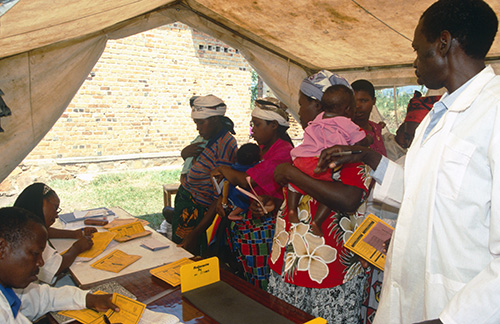
Shortly after assuming office in January 2017, President Trump reinstated and expanded the Mexico City Policy to apply to nearly all U.S. global health assistance, including HIV funding through the President’s Emergency Plan for AIDS Relief (PEPFAR). The policy prohibits the provision of U.S. global health funding to non-U.S. nongovernmental organizations that advocate, provide, counsel, or refer patients for abortions, even if using the organization’s own funds for these activities.
“Reductions in integrated health services in these already vulnerable environments is a manufactured public health emergency that runs counter to U.S. global health goals.” – Jennifer Sherwood, Public Policy Office amfARIn a newly published study in BMC Public Health, amfAR Policy Associate Jennifer Sherwood with colleagues from amfAR and Planned Parenthood Global have mapped the potential impact of the expanded Mexico City Policy on family planning and HIV service integration in countries supported by PEPFAR funds. The earlier and more limited iterations of the policy forced clinic closures and decreased contraceptive access, prompting the urgent need to assess where and how the expanded policy may impact service delivery.
The study highlights several areas at significant risk for service disruptions due to the policy, especially in sub-Saharan Africa where the HIV pandemic is most prominent. Disruptions to family planning and HIV service integration could have serious consequences for contraceptive access, HIV prevention, and unintended pregnancies among women living with HIV. The authors assert that researchers, national governments, and non-U.S. funders should consider the risk factors identified in the study to assess where the impacts of the policy may be the greatest in order to mitigate potential harms.
“Troublingly, it is often the same countries that already have the highest rates of HIV and unintended pregnancy that are also the most likely to be impacted by the expanded Mexico City Policy,” said Sherwood. “Reductions in integrated health services in these already vulnerable environments is a manufactured public health emergency that runs counter to U.S. global health goals.”
You can read amfAR’s issue brief on the Mexico City Policy here.